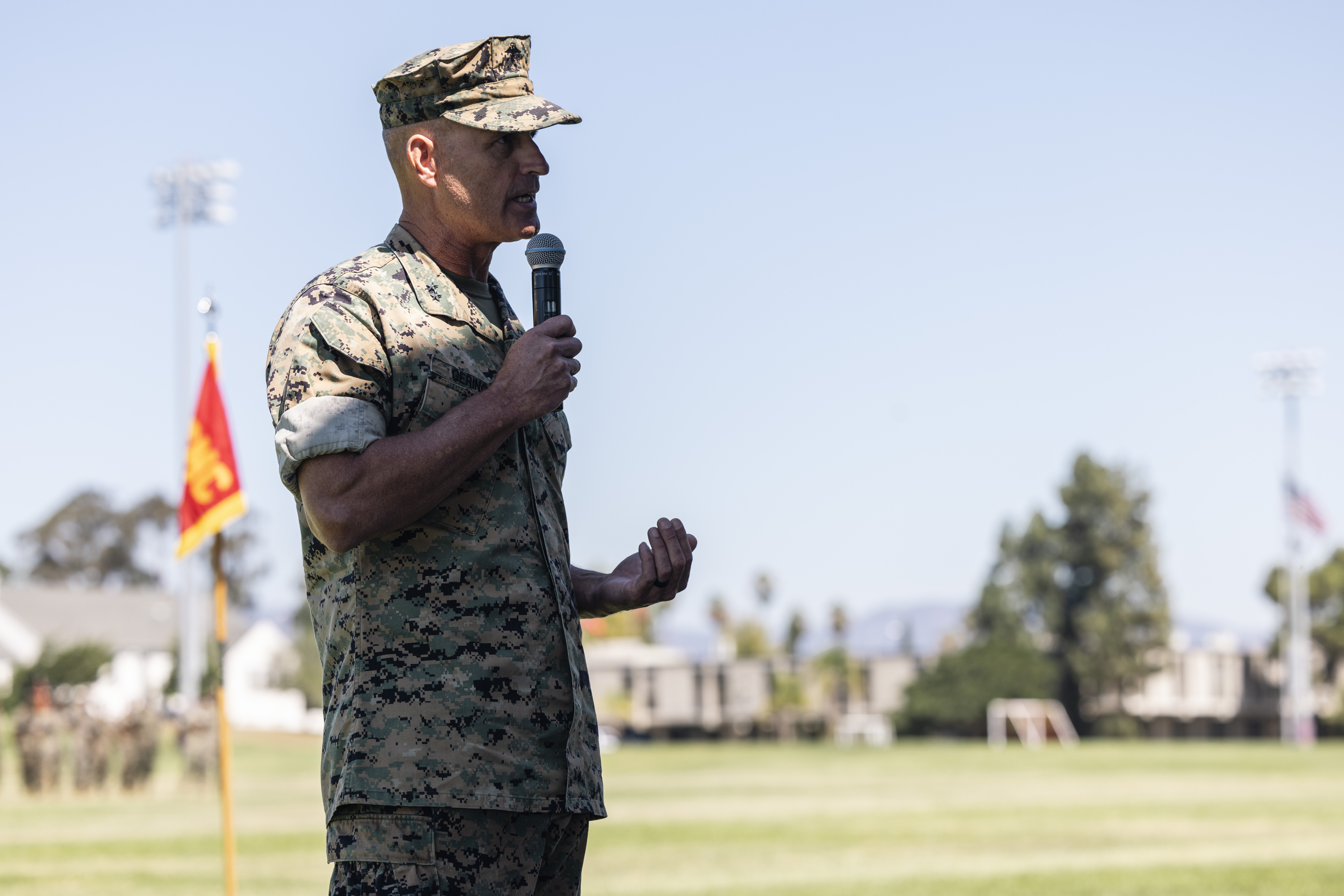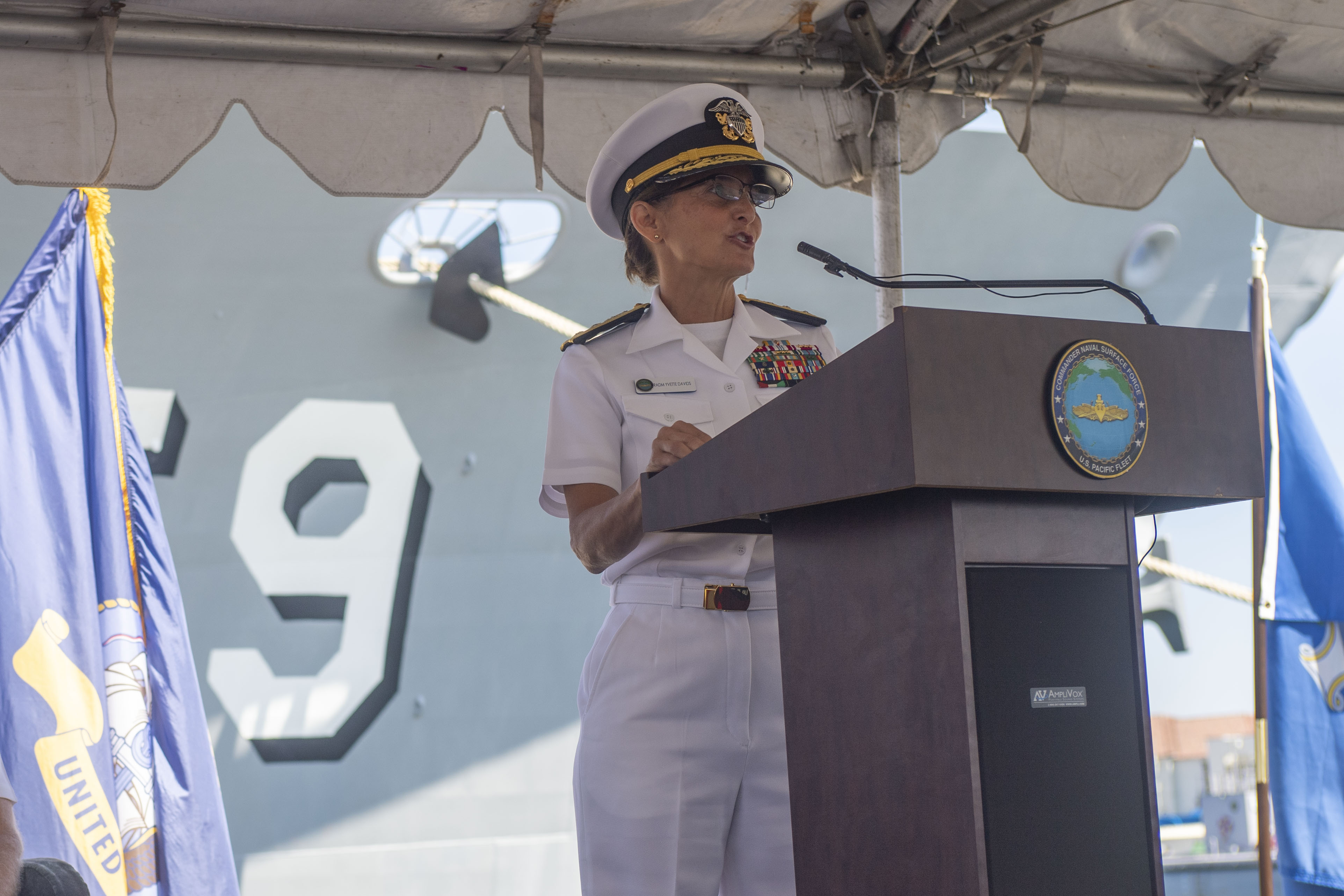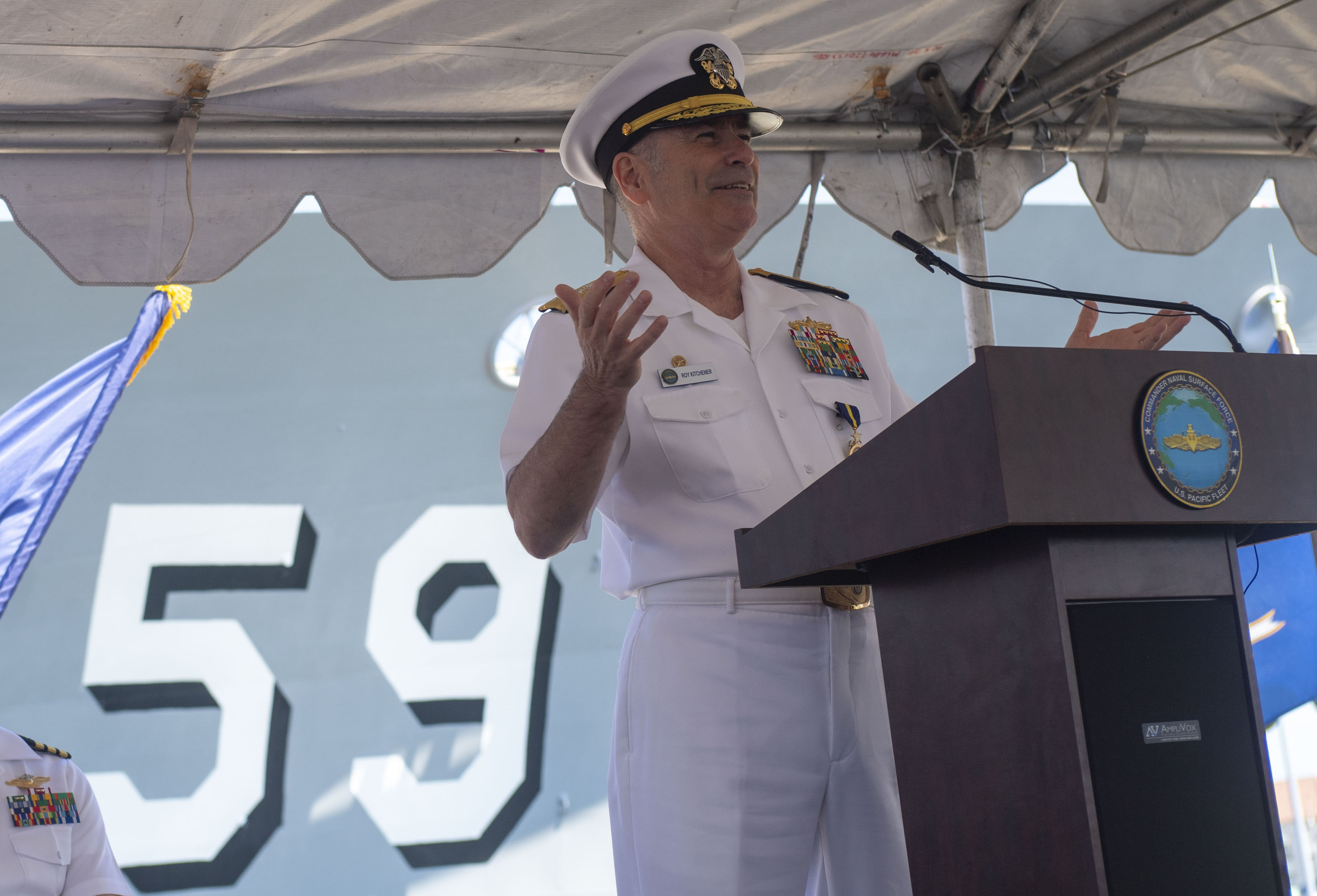
This post has been updated with additional details.
Two major three-star commands changed leaders in separate southern California ceremonies on Friday.
At Camp Pendleton, Calif., Lt. Gen. George Smith relinquished his command of I Marine Expeditionary Force to Maj. Gen. Bradford Gering. Meanwhile, at Naval Base San Diego, Vice Adm. Roy Kitchener turned over command of Naval Surface Force to acting SWOBOSS Rear Adm. Yvette Davids in a ceremony on Pier 2.
Smith will retire in September to cap a 38-year career. He praised I MEF – the Marine Corps’ largest – as a bona fide Marine air-ground task force of “47,000 individual threads… (that) form the fabric of this MEF.”
“It’s a global force. We are forward laser-focused in the Indo-Pacific as directed,” he said. “But make no mistake: This MEF is prepared to fight and win in any clime and place,” noting the Marines and sailors “warfighting MEF” have trained or operated in every geographic combatant command in over a dozen countries from Alaska to Chile and from United Arab Emirates to the U.S. southern border.
Gering’s is scheduled to move to Washington, D.C., where he’s slated to be promoted and assigned as the deputy commandant for aviation. That position is currently held by Lt. Gen. Michael Cederholm, who’s nominated to take I MEF’s command from Smith. Gering most recently commanded 3rd Marine Aircraft Wing, I MEF’s air component, based at Miramar Marine Corps Air Station in San Diego.
At the Pendleton parade deck, acting Marine commandant Gen. Eric Smith told the crowd that Gering won’t serve as an acting commander.
“You are in command of the MEF,” Assistant Commandant of the Marine Corps Smith told Gering. “There is no acting for you. You are in command of this MEF.”
South in San Diego, Davids took charge of the Naval Surface Force and will serve as the acting SWO Boss.

“Vice Adm. Kitchener led us through some impressive organizational changes, a global pandemic, forward deployed operations, and all the while tirelessly advocating for you, the Surface Warrior and your ships,” Davids. said “My charge to you as we keep a steady strain on our jobs and initiatives; take care of your people, conduct safe operations, and get ready to take to the fight when your command is called.”
Kitchener served as the type commander for cruisers, destroyers and amphibious warships since June of 2020. He took command days after the Bonhomme Richard fire and instituted fire safety reforms and a data-based readiness drive for the surface fleet.
A career surface warfare officer, he commanded USS John Paul Jones (DDG-53), USS Higgins (DDG-76) and USS USS Princeton (CG-59), as well as Expeditionary Strike Group 2 and as commander, U.S. Surface Force Atlantic.
Davids was nominated to serve as the Naval Academy superintendent and will lead the San Diego surface warfare command pending her confirmation.
A career surface warfare officer, she deployed on Mars-class combat stores ship USS San Jose (AFS-7) as part of Desert Shield and Desert Storm. She also served as the executive officer for Arleigh Burke-class guided-missile destroyer USS Higgins (DDG-76) during Operation Iraqi Freedom and commanded Oliver Hazard Perry-class frigate USS Curts (FFG-38) during deployments as part of operations Enduring Freedom and Iraqi Freedom. She also commanded USS Bunker Hill (CG-52) the Nimitz Carrier Strike Group.

Rear Adm. Brendan McLane was nominated in April to serve as the next commander of Naval Surface Force and the commander of Naval Surface Force, U.S. Pacific Fleet. He was until recently the commander of SURFLANT in Norfolk, Va. Rear Adm. Joe Cahill took over SURFLANT on June 2.
The temporary leadership shuffle is part of an ongoing stall in confirmations. Since February, Sen. Tommy Tuberville (R-Ala.) has placed a hold on unanimous Senate confirmations for military nominations over objections that a Pentagon policy that reimburses service members for travel out-of-state for abortions. The Defense Department policy also includes other non-covered procedures like in vitro fertilization. Tuberville says the policy is a violation of the Hyde Amendment that bans federal funds to be used for abortions – a charge the Pentagon denies. So far about 300 flag and general officer nominations are on hold across the DoD.





